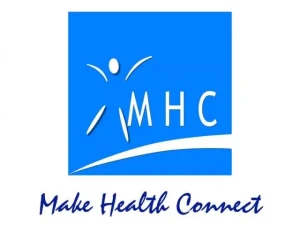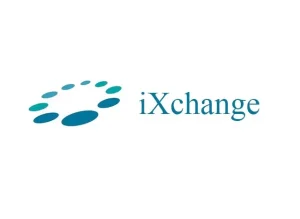Fibroscan
A FibroScan is a quick, painless and non-invasive test used to assess liver health. Using advanced ultrasound technology, it accurately measures liver stiffness (scarring) and fat accumulation (steatosis).
Richmond Gastroenterology Centre
Dr. John Hsiang
MBChB (NZ), FRACP (Australasia), MD (Doctorate), FRCP (Edinburgh), FAMS (Gastro)
Dr. John Hsiang is a distinguished gastroenterologist in Singapore with extensive training and experience in digestive health. He obtained his Fellowship of the Royal Australasian College of Physicians in Gastroenterology in 2012 and holds a PhD in viral hepatitis and fatty liver disease research.
He provides care for a broad range of digestive and liver concerns, combining thorough evaluation with tailored management to support patients’ long-term well-being.
Dr Hsiang is skilled in performing gastroscopy (upper endoscopy) and colonoscopy to investigate symptoms, detect stomach and colon cancers at an early stage, and provide timely treatment options.
With a commitment to individualised care, he applies an evidence-based approach that prioritises accuracy, effectiveness and patient comfort at every stage of diagnosis and treatment.
Languages Spoken:
English, Mandarin and Hokkien
Fellowship Trained Specialist
20+ Years of Clinical Experience

What is a FibroScan?
A FibroScan is a specialised ultrasound that uses transient elastography to measure liver stiffness (fibrosis/liver scar tissue) and fat content (steatosis). It provides an immediate, on-the-spot evaluation of your liver health without the need for an invasive biopsy.
This enables the early detection of liver conditions, often before symptoms develop. Crucially, early assessment is key as conditions like fatty liver disease and early-stage liver damage are often reversible with timely intervention, preventing progression to more serious disease.
It is also an essential tool for diagnosing and monitoring conditions such as non-alcoholic fatty liver disease (NAFLD), alcohol-related liver disease, chronic hepatitis B or C, and cirrhosis (advanced scarring).
How a FibroScan is Performed
During the scan, you will lie comfortably on your back with your right arm positioned above your head. A small amount of gel is applied to your skin and a handheld probe is placed over the liver area.
The probe emits gentle, painless vibrations to measure liver stiffness and fat content. The procedure is quick and usually takes only 10 to 15 minutes to complete.
Understanding Your FibroScan Results
Your FibroScan provides two key measurements that help your doctor understand the health of your liver:
| Measurement | What It Means | Score Interpretation |
| Liver Stiffness (kPa) | Measures the amount of scarring (fibrosis). A healthy liver is soft, while a scarred liver is stiffer. | < 6.0 kPa: Normal<br>7.0 – 9.5 kPa: Mild fibrosis<br>> 12.5 kPa: Advanced fibrosis or cirrhosis |
| CAP Score (dB/m) | Measures the amount of fatty change (steatosis) in the liver. | Lower values indicate less liver fat.<br>Higher values suggest fatty liver disease. |
When is a FibroScan Necessary?
Your doctor may recommend a FibroScan to proactively assess your liver health, especially if you have certain risk factors or symptoms. It is a valuable tool if you:
- Have abnormal liver enzyme results from a blood test
- Have been diagnosed with Hepatitis B, Hepatitis C or fatty liver disease
- Are living with conditions such as obesity, diabetes or high cholesterol
- Consume alcohol regularly or excessively
- Experience symptoms like persistent fatigue, abdominal discomfort or jaundice
- Are on long-term medication that could affect the liver
Who Faces a Higher Risk of Liver Disease?
You could benefit from a FibroScan if you have conditions such as diabetes or obesity, consume alcohol regularly, have been diagnosed with hepatitis or lead a sedentary lifestyle. Risk also increases with age.
How Safe is a FibroScan?
90%
Accuracy for Detecting Significant Fibrosis
>90%
Success Rate of Measurements
What to Expect: Your FibroScan Step-by-Step
Experiencing symptoms suggestive of a gallbladder condition? Here’s what to expect when you visit our liver specialist in Singapore:

Make an Appointment
Consultation Before the Scan
Preparing for and Undergoing the Scan
Immediate Results and Next Steps
Patient Information
Is a FibroScan painful?
Not at all. Most patients describe the sensation as a series of light taps or vibrations on the skin. It is completely painless.
How is a FibroScan different from a regular ultrasound?
While both use ultrasound technology, a FibroScan is specialised to provide specific measurements of liver stiffness and fat content—details a regular ultrasound does not typically provide.
Can I use my insurance or MediSave for a FibroScan?
A FibroScan may be claimable through MediSave or covered by your insurance, depending on the medical reason for the scan. Our clinic staff can assist with checking your eligibility.
Do I need to do anything to prepare?
Yes, you will need to fast (no food or drink) for at least three hours before your appointment to ensure the results are accurate.
Can I go back to work after the scan?
Yes, you can resume all normal activities, including work, eating and driving, immediately after the procedure. There is no downtime.
Consult Our Specialist
Experiencing digestive symptoms or discomfort? Speak to our gastroenterologist for a clearer understanding of your condition and treatment options.
You may book an appointment using our contact form or call the clinic at 6517 9958










